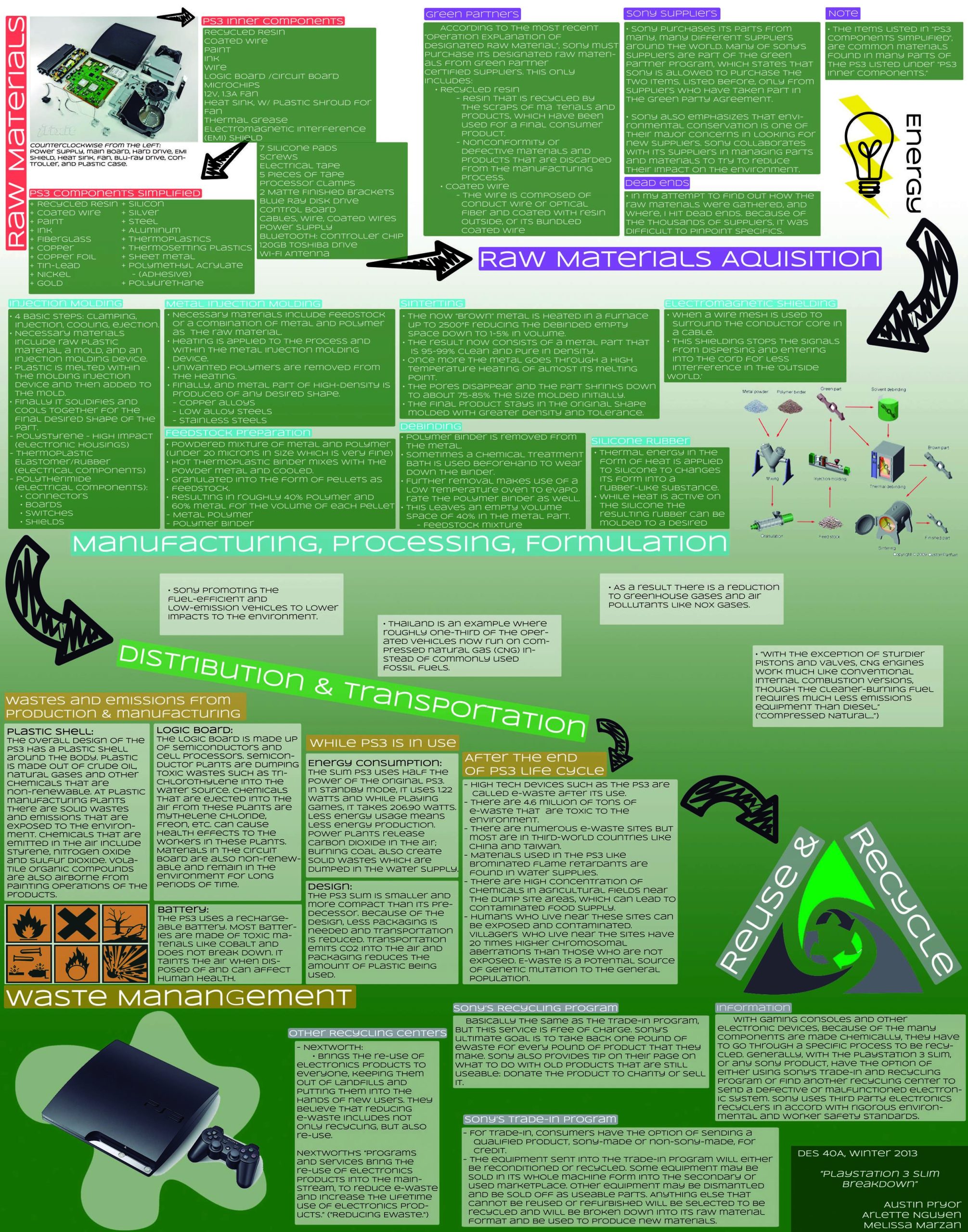The PlayStation 3 lifecycle has been a fascinating journey, marked by Sony’s strategic decisions and consumer expectations. At the Consumer Electronics Show, the company made headlines not with a flashy new console release, but with a firm statement about the longevity of the PS3. Kazuo Hirai, Sony’s chairman, emphasized the commitment to the PS3’s 10-year lifecycle, surprising many who anticipated the Sony PS4 announcement during E3 2014. This notable decision underscores a shift in the gaming industry, as traditional release cycles are typically around five years. As fans look ahead, Hirai’s remarks suggest that no new console will grace the market until at least 2015, leaving gamers to ponder the implications of this extended wait.
Examining the lifespan of the Sony PlayStation 3 reveals an intricate tapestry of innovation and expectation within the gaming community. Instead of unveiling a fresh gaming system, Sony took a bold stance at the Consumer Electronics Show, declaring their dedication to the PS3’s ongoing relevance. With Kazuo Hirai’s assurance of a decade-long lifecycle for the console, the anticipation surrounding the potential revelation of the PlayStation 4 at E3 2014 has shifted dramatically. This remarkable commitment reflects broader trends in consumer electronics, challenging traditional norms of console replacement and lengthening the typical intervals between releases. As players brace themselves for a prolonged era with the PS3, the gaming landscape appears poised for an interesting evolution.
The PlayStation 3 Lifecycle: A Commitment to Longevity
Sony’s commitment to the PlayStation 3 lifecycle highlights a strategic approach to consumer electronics that sets it apart from its competitors. By emphasizing a 10-year lifecycle for the PS3, Sony is not only ensuring that its existing user base continues to thrive but also fostering long-term consumer relationships. This approach counters the aggressive cyclical nature of console releases that typically sees new consoles every few years, providing consumers with a chance to fully experience and enjoy their current investments without the fear of obsolescence.
As Kazuo Hirai emphasized during discussions at the Consumer Electronics Show, this dedication to longevity underscores a promise to provide continuous support and innovation for the PS3 system. By maintaining focus on this console, Sony is arguably paving the way for a more measured transition to next-generation technologies, allowing developers time to create intricate, cutting-edge games that take full advantage of the PlayStation 3’s capabilities before moving to new platforms.
Rumors and Predictions Surrounding New Console Releases
The landscape of gaming is often filled with speculation and anticipation regarding new console releases. As we look forward to events like E3 2014, the question on everyone’s mind is whether Sony will finally unveil the much-anticipated PlayStation 4. However, in light of Kazuo Hirai’s statements regarding the PS3, it seems that consumers might have to wait longer than expected. The decision to forgo introducing a new console at such high-profile events as E3 signifies a tactical move by Sony to concentrate on enriching their PS3 offerings rather than rushing to join the next-gen race.
Concurrent reports regarding Microsoft’s lack of commentary on their own E3 plans suggest that the industry is entering a phase of strategic positioning. While both companies seem to maintain a focus on their current consoles, fan expectations remain high, and predictions for new releases are abundant. The Consumer Electronics Show provided a platform for both leaders, but instead of focusing on what’s to come, the emphasis was placed on reinforcing the lifecycle of existing products, which ultimately reflects a significant shift in priorities throughout the consumer electronics landscape.
Kazuo Hirai’s Vision for PlayStation’s Future
Kazuo Hirai’s vision for the future of PlayStation and the company’s gaming strategy has been pivotal in shaping the gaming industry. His decision to announce the longevity of the PS3 lifecycle rather than introduce a new console at the Consumer Electronics Show effectively reassures consumers that Sony is focused on quality over quantity. By staying committed to the PS3, Hirai aims to foster a rich ecosystem of players, developers, and games that can fully leverage the existing hardware until the timing is right for a new generation, possibly aligning with anticipated future advancements in technology.
Hirai’s comments resonate deeply with gamers who appreciate a platform that values their investment in gaming hardware. By guiding the PlayStation brand with a focus on developing strong community ties and ensuring robust game releases, Hirai’s leadership is steering Sony through a phase where innovation and user experience are prioritized over immediate profit gained from new hardware sales.
E3 2014: A Turning Point for Gaming Enthusiasts
E3 2014 promises to be a critical moment for the gaming industry, yet the absence of new console announcements from Sony leaves many fans scratching their heads. As discussions swirl around the potential trajectories of Sony and Microsoft, it’s pivotal for gaming enthusiasts to consider what this means for the future of console gaming. With the PS3 expected to continue receiving support and new game releases, the anticipation for PS4 is matched by the uncertainty surrounding its arrival. The expectations set by Hirai may lead to a period of stability, which some could argue is much needed in the often tumultuous world of gaming.
Furthermore, the divergent strategies of Sony and Microsoft could also impact the overall direction of gaming forward. Predictions for what might be next for each company remain varied, but with Hirai’s clear stance on the current console lifecycle, Sony seems to be betting on a strategy that prioritizes its immediate gaming experience over rushing to release the next big thing. As E3 approaches, how both companies handle their existing brands could define their reputations within the industry and ultimately affect their market share in the years to come.
Early Signs of PlayStation 4 Innovations
The lead-up to the PlayStation 4 announcement is filled with speculation about what innovations might be integrated into the new console. With a focus on the PlayStation 3 for the next few years, the groundwork for PS4’s unique features is likely under way, benefiting from the extensive feedback from gamers currently using the PS3. As gameplay experiences evolve, the expectations for new technological advancements at E3 continue to mount, raising questions about how Sony will address these challenges and opportunities.
Consumers are eager to learn about potential innovations in game mechanics, graphics capabilities, and even interactive experiences that might set PS4 apart from its predecessor and competitors. Kazuo Hirai and his team have been rumored to be developing solutions that could redefine gameplay, offering unique experiences that enhance user engagement while still paying homage to the successful elements of the PS3 lifecycle.
The Impact of Consumer Electronics Show Announcements
The Consumer Electronics Show plays a crucial role in shaping consumer expectations across various tech sectors, including gaming consoles. Sony’s decision to clarify their position about the absence of a new PlayStation system has sparked discussions about the industry’s pace, reflecting a shift towards transparency in how companies communicate their strategies. Announcements like these serve not just to inform potential buyers but also to manage the narratives surrounding what should be expected in the near and long term.
Further, CES provides a platform for Sony to showcase its commitment to the PS3 while strategically preparing audiences for future possibilities. By choosing to highlight existing products and projecting a stable lifecycle, the company leverages CES to fortify its market position amidst rising competition from other gaming systems. The statements made at the CES thus play a pivotal role in not only maintaining customer loyalty but also in orchestrating the broader evolution of their product offerings.
Transitioning to Next-Gen: Developer Insights
With the world of game development constantly evolving, transitioning to next-gen consoles presents unique opportunities and challenges for developers. Sony’s recent emphasis on continuing support for the PS3 leaves ample room for developers to explore innovative game designs and techniques that can enhance the gaming experience. As industry professionals reflect on Kazuo Hirai’s statements, there’s a collective realization that nurturing the current platform can lead to greater innovations when the time finally comes to embrace next-gen gaming.
Developers and studios keen on maximizing their resources within the PS3 ecosystem now have the space to push the boundaries of creativity. At the forefront of this dialogue are discussions surrounding how new gaming technologies can be integrated into the development process, ultimately allowing for enriched gameplay experiences while maintaining a focus on quality. Such insights foreshadow what larger tools might become standard with the eventual release of the PlayStation 4, encouraging the industry to think ahead and continuously evolve.
Future Predictions on Console Wars and Market Dynamics
The dynamics of the console wars have been ever-changing, with major players like Sony and Microsoft actively competing to capture the hearts and minds of gamers. With Kazuo Hirai reaffirming Sony’s commitment to the PS3, many analysts speculate about the potential longer-term effects on market dynamics. Will the wait for a PS4 create a vacuum that competitors might exploit, or will it solidify branding loyalty due to the high-quality gaming experiences currently offered on the PS3?
As we brace for E3 2014 and other industry events, predictions abound about how companies plan to leverage existing technologies and consumer relationships. It’s a battleground for market share, and Sony’s strategy, as articulated by Hirai, could have profound implications for how other companies respond—whether that means accelerating their own product cycles or focusing on innovation in games that pair with current hardware.
The PlayStation Brand: Sustaining Growth and Innovation
In navigating the ever-evolving gaming landscape, the PlayStation brand has demonstrated a remarkable resilience and capacity for innovation. By holding steadfast to the PlayStation 3 lifecycle, Sony emphasizes not just sustaining growth but also fostering an environment where creativity can thrive. As they refrain from rushing into the release of a new console, the company is carving out a unique niche that speaks to both loyal customers and new audiences looking for rich gaming experiences.
Sustaining the PlayStation brand involves balancing consumer expectations while fostering a wealth of new content. As developers tap into the full potential of the PS3, gamers can expect a stream of innovative titles that push technical boundaries and redefine playability. The commitment to nurturing the existing console reflects a deeper understanding of the market and a dedication to evolving alongside its users. Only time will tell how these strategic decisions will impact Sony’s position as a leader in the gaming industry.
Frequently Asked Questions
What is the PlayStation 3 lifecycle according to Sony’s announcements?
Sony has established that the PlayStation 3 lifecycle is expected to last around 10 years. This was reiterated by Kazuo Hirai during the Consumer Electronics Show, where he noted that the PS3 would continue receiving support and updates even as discussions about new console releases, like the PS4, began.
Will the PlayStation 4 be announced during the PlayStation 3 lifecycle?
No, during the Consumer Electronics Show, Kazuo Hirai clearly stated that Sony will not unveil the PlayStation 4 at events such as E3 2014. This announcement reinforces the commitment to continuing the PlayStation 3 lifecycle without introducing a new console prematurely.
What did Kazuo Hirai say about new console releases and the PlayStation 3 lifecycle?
Kazuo Hirai emphasized that the PlayStation 3 has a defined lifecycle of 10 years, implying that new console releases are not imminent. This statement indicates that while the gaming landscape evolves, Sony intends to support the PS3 adequately throughout its lifecycle.
How does the PlayStation 3’s lifecycle compare to traditional console release cycles?
Traditionally, gaming consoles have been replaced every five years, but Sony’s approach with the PlayStation 3 lifecycle deviates from this norm. Kazuo Hirai’s comments suggest that players can expect a longer support period before any potential new console, such as the PS4, is released.
What impact does the 10-year PlayStation 3 lifecycle have on future Sony consoles?
The decision to ensure a 10-year lifecycle for the PlayStation 3 means that consumers should not expect a new console release until after 2015, thereby shaping expectations for upcoming Sony consoles. This strategy allows Sony to focus on maximizing the value and experience offered by the PS3 before launching any new generation.
| Key Point | Details |
|---|---|
| PlayStation 3 Lifecycle | Sony announces a 10-year lifecycle for the PS3. |
| No PS4 Announcement | Sony confirms that no new console will be unveiled at E3. |
| Introduction Date | PS3 was introduced at E3 2005 and released in 2006. |
| Next Console Release | New console likely not until 2015, extending the typical replacement cycle. |
| Sony’s Position | Reiterated by Sony’s chairman, Kazuo Hirai, meeting with reporters at CES. |
Summary
The PlayStation 3 lifecycle signifies a significant approach by Sony, with a commitment to maintaining a console for ten years. This breaks away from the conventional cycle of five years typically seen in the gaming industry. As confirmed by Sony’s chairman, Kazuo Hirai, the company is not planning to release its next-generation console until 2015 at the earliest, allowing existing players to maximize their investment in the PS3. With this announcement, Sony is positioning itself uniquely in the gaming market, emphasizing stability and long-term support for its PS3 platform.







